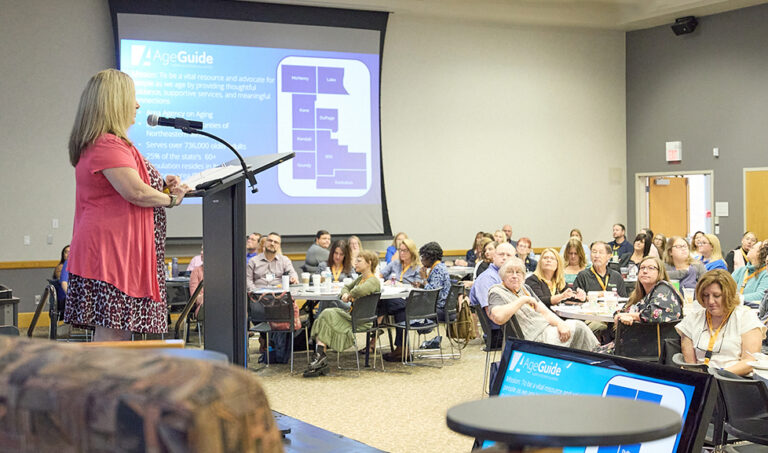
Ronit is a freelance writer, based in Chicago. She has a special interest in health, healthcare and preventive medicine.
In 2023, we covered an amazing variety of caregiving stories. In some, we showcased inspiring ways that older adults challenged themselves physically, socially, and intellectually. In others, we wrote about some of the challenges that invariably arise as we age. You’ll learn about the benefits of reading, tips for traveling (near or far) as an older adult, the difficulties of caregiving for loved ones who have substance use disorders, and more. Our top story is about collecting — its history, and why we do it. It’s a fascinating look at this unique human habit.
Happy reading, and a happy and healthy new year!
 10. Embrace the Travel Age
10. Embrace the Travel Age
June 2023 – Our summer/fall issue was all about older adults and travel. Defying aging stereotypes and challenges, many find value and inspiration in adventure. Yet, mobility issues can cause stress if part of the trip is not accessible. And leaving their comfort zone makes some travelers anxious. Plus, changing time zones, moving from place to place, and packing can be downright exhausting. Writer (and chronic traveler) Jennifer Billock explores the pros and cons.

9. Indelible Ink
November 2023 – Only 13% of people over age 65 in the U.S. have a tattoo. Writer Dan Dean talks with some of them, looking into societal attitudes in the U.S. towards tattoos and why some older adults have chosen to buck anti-tattoo trends.
 8. Super Aging
8. Super Aging
December 2023 – What if, as you got older, your memory abilities stayed as they were decades ago? This is what happens for so-called SuperAgers — a term coined 15 years ago at Northwestern University. SuperAgers are adults over age 80 whose memories work at the same level as individuals 20 to 30 years younger. In this piece, writer Victoria Shanta Retelny digs into potential causes.
 7. Seeking Caregiver Support
7. Seeking Caregiver Support
January 2023 – Caregiving can feel like it’s happening in a vacuum, but people in Illinois are working to change that, writer Melanie Kalmar shares. The Illinois Family Caregiver Coalition formed in 2022 with a $4 million grant from the Retirement Research Foundation for Aging. Stakeholders include upwards of 200 members, such as associations, family caregivers, healthcare providers, hospitals, and more — all working to advocate for and connect caregivers with more resources.
 6. Power of Purees
6. Power of Purees
April 2023 – Eating should be a pleasure, but for some people this basic necessity becomes a chore due to health challenges. For this story, Nancy Maes talks with local chefs who are turning to more options — such as small bites and pureed foods — to make mealtime enjoyable again.
 5. Keep Connecting
5. Keep Connecting
October 2023 – Distance doesn’t have to end relationships, whether that distance is due to geography or health changes. And for older adults, the lack of connections in a new place can lead to social isolation and loneliness, directly affecting their health. Staying in touch with your closest friends has extensive benefits for everyone involved, writes Katie Colt. You just have to find a way that works for you.
 4. Caregiving and Addiction
4. Caregiving and Addiction
May 2023 – Caring for somebody who is misusing drugs or alcohol is fraught with challenges. The caregiver and their loved one often end up isolated due to the stigma around addiction. And the health issues don’t end at addiction, as writer Sarah Lindenfeld Hall outlines in this story. People with addiction often grapple with other conditions, particularly mental health disorders, and chronic health issues that have emerged from drug or alcohol abuse. Caregivers have to navigate all these challenges alongside their loved one.
 3. Reading Rewards
3. Reading Rewards
October 2023 – As writer Nancy Maes shares in this story, studies show that reading offers protections against dementia as people age. It also improves memory, concentration, and stress levels, and it enhances people’s ability to empathize. What are researchers doing with this information?
 2. Soaring — or Sinking? — Sodium
2. Soaring — or Sinking? — Sodium
November 2023 – Sodium levels — whether too high or too low — can impact many health functions, from balance to cognition. Normal sodium levels in the blood range from 135 to 145 milliequivalents per liter. As writer Jeanette Hurt explains in this story, levels outside of that tight span may mean dehydration, kidney issues, or other medical conditions.

1. Why We Collect
September 2023 – No matter what collectors choose to gather, the pastime offers many benefits. Yet over the years, humans’ collecting habits have changed to reflect the times in which they live (such as fabric or paper during the Great Depression). Here, writer Nancy Maes explores the purpose that collecting serves today.











